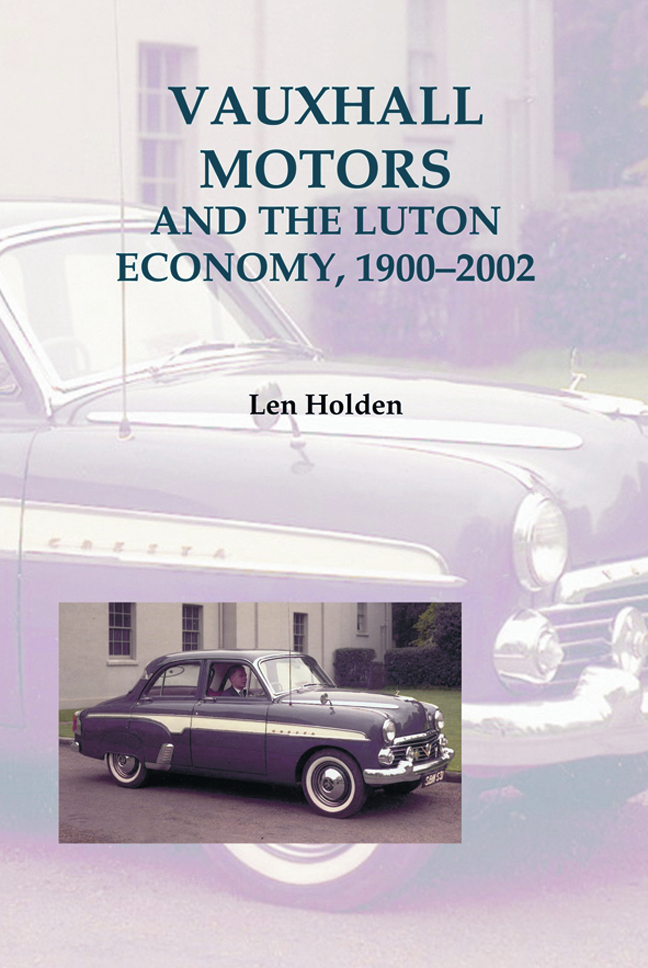Book contents
Five - Management and Labour Relations to 1929
Published online by Cambridge University Press: 15 February 2024
Summary
Vauxhall's labour relations policies between 1900 and 1950 have a natural division in 1929 from which date Charles Bartlett took the post of Managing Director. The earlier period was one in which Vauxhall was growing and before the First World War industrial relations were generally amicable. The firm was small and the close relationship between management, who were working engineers themselves, and the workforce was conducive to an atmosphere of cooperation. This was further stimulated by expectations of greater success.
The First World War gave the first indications of stress in managementlabour relations. The loss of skilled men to the armed forces, the replacement by dilutees (unskilled or semi-skilled labour taking over skilled jobs) and women, and the enlargement of the workforce contrasted strongly with the relatively stable pre-war workforce. Vauxhall along with other engineering firms, both nationally and locally, was forced to give concessions in the form of higher wages, lower hours of work and the granting of premium bonus. It was willing to concede these demands in return for high productivity and profitability.
By the end of 1920 the economic climate was changing radically as the economy slid into depression which had heavy repercussions in the motor industry. Vauxhall began to make enormous losses and retrenchment was seen as the only solution. This meant cutting labour costs and increasing productivity which could only result in confrontation with the unions and a return to complete managerial control in the work place.
Pre-war developments
The basis of industrial relations at Vauxhall is in the development of Luton itself, which is discussed in detail in later chapters. Luton's population had grown from 2,986 in 1821 to 36,404 by the end of the century. The chief occupation had been hat-making, which was based partly on the domestic system, and partly on small workshops in the centre of Luton and employed predominantly female labour. The nature of the main Luton industry was a crucial factor in explaining the relative docility of the workforce in terms of union organisation. It was never an organised industry as far as trade unions were concerned, due mainly to the small size of units, the casual nature of the work, in terms of irregular hours, and the seasonal unemployment which affected the industry in the summer months, and more particularly in the period from November to January.
- Type
- Chapter
- Information
- Vauxhall Motors and the Luton Economy, 1900-2002 , pp. 87 - 116Publisher: Boydell & BrewerFirst published in: 2024

